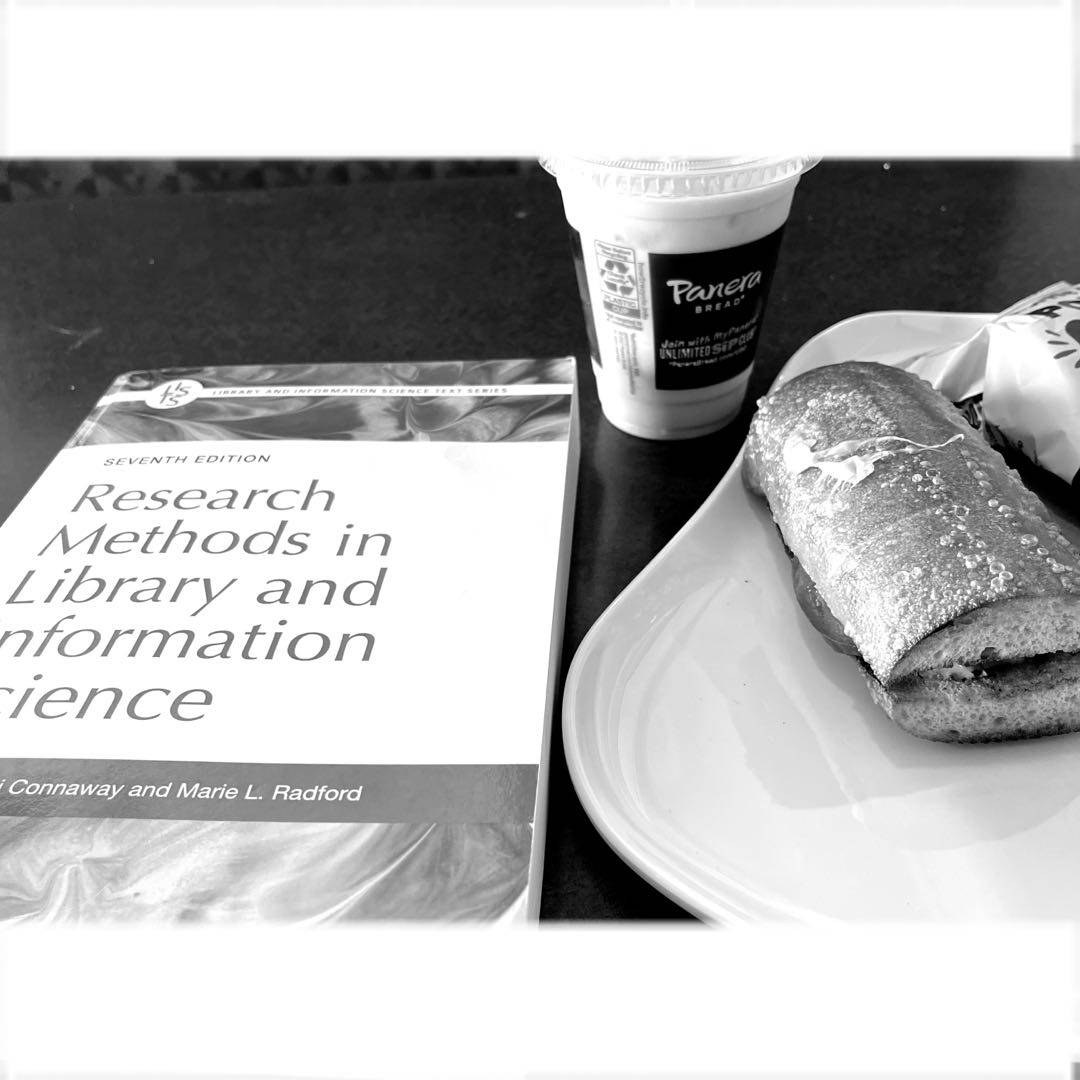
Approximately two and a half weeks left of grad school. Fueling up while reading about disseminating research.

Approximately two and a half weeks left of grad school. Fueling up while reading about disseminating research.
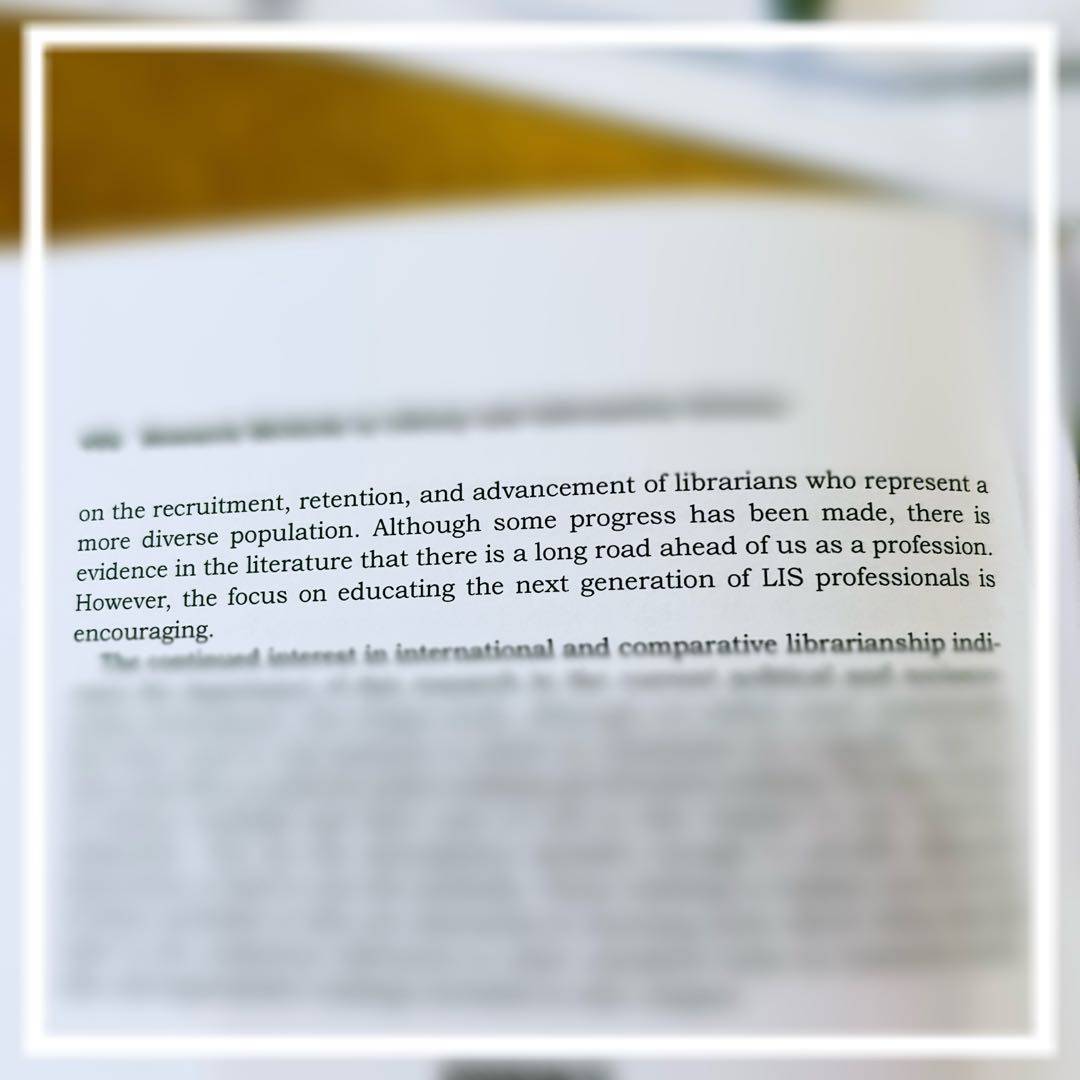
“Although some progress has been made, there is evidence in the literature that there is a long road ahead of us as a profession. However, the focus on educating the next generation of LIS professionals is encouraging.”
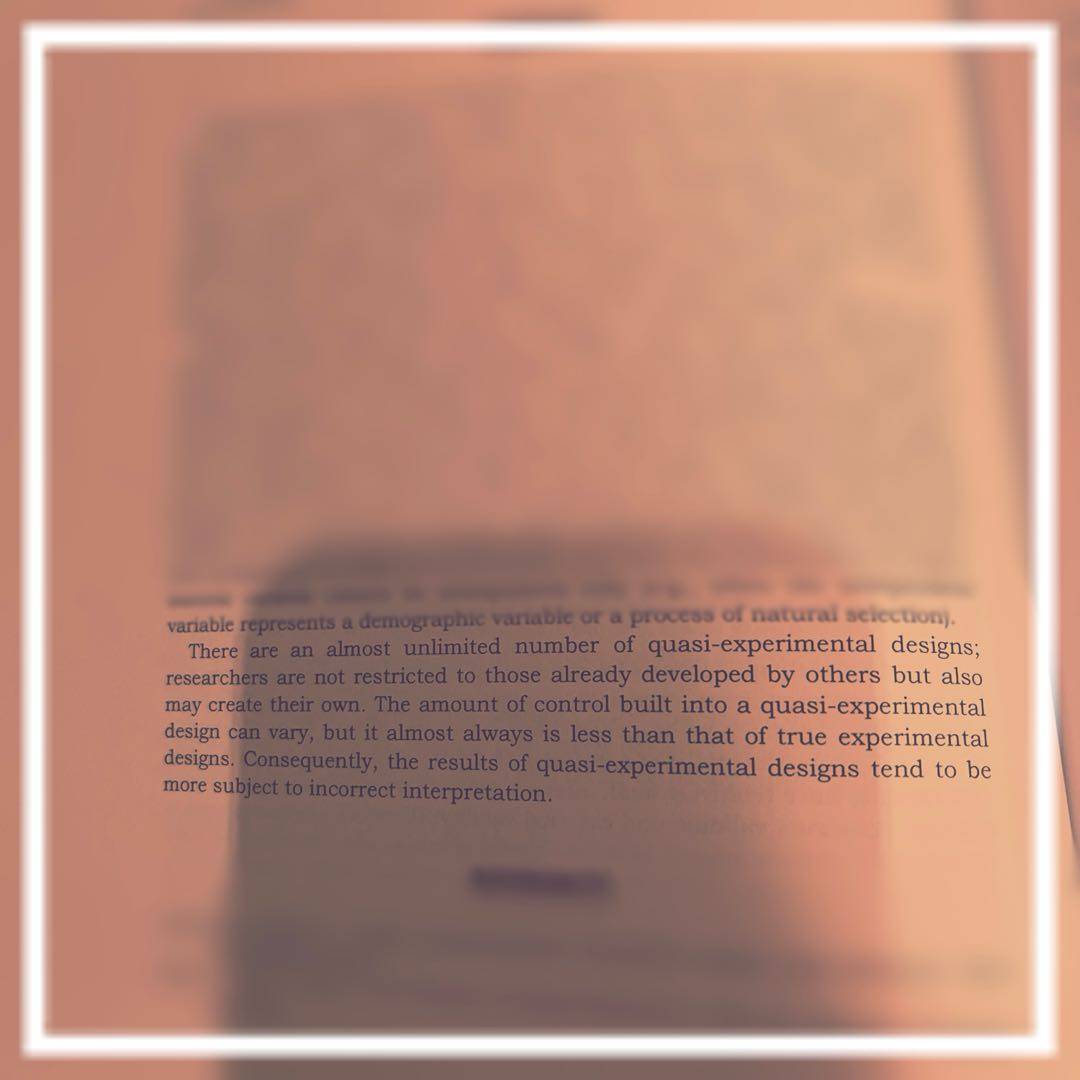
“There are an almost unlimited number of quasi-experimental designs; researchers are not restricted to those already developed by others but also may create their own. The amount of control built into a quasi-experimental design can vary, but it almost always is less than that of true experimental designs. Consequently, the results of quasi-experimental designs tend to be more subject to incorrect interpretation.”
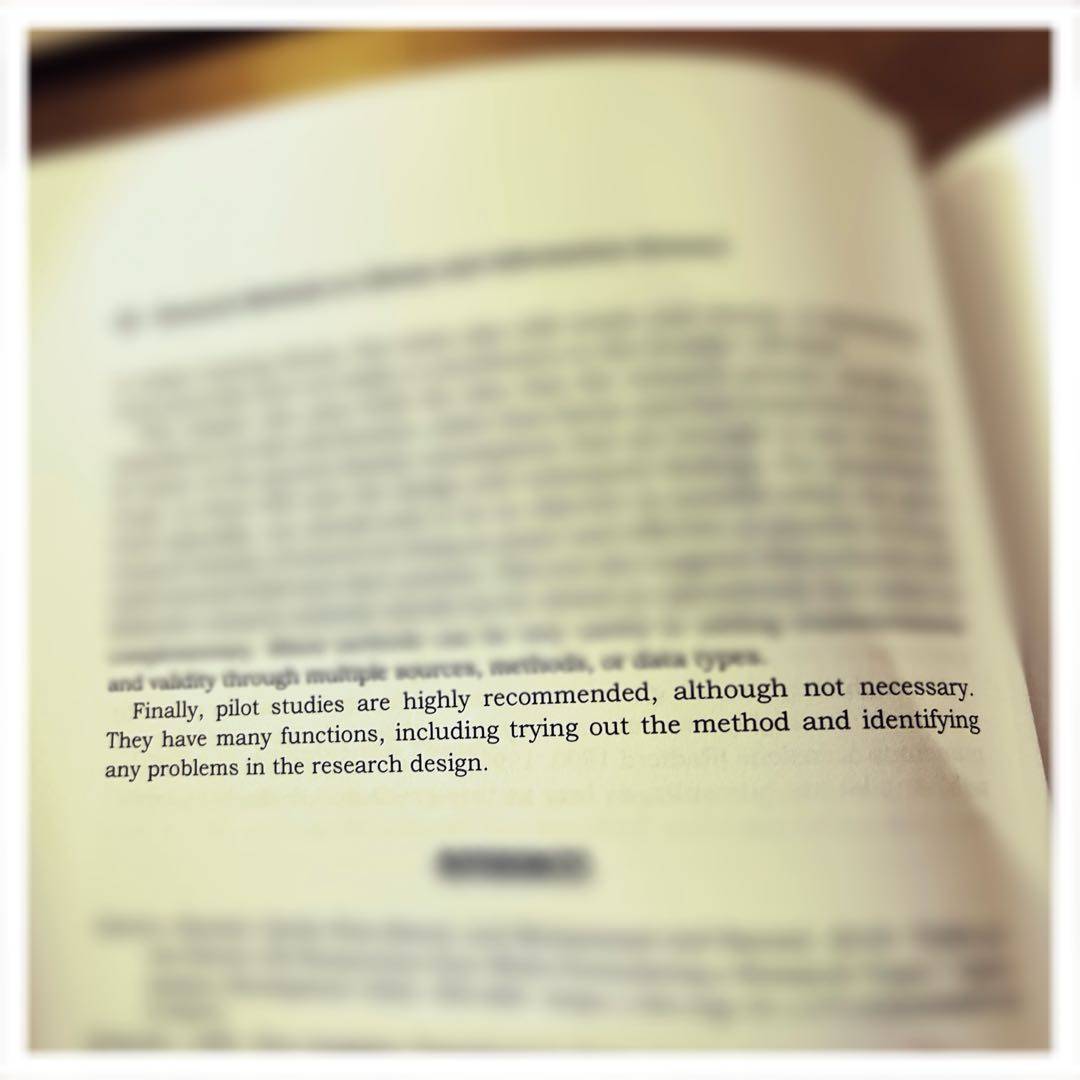
“Finally, pilot studies are highly recommended, although not necessary. They have many functions, including trying out the method and identifying any problems in the research design.”
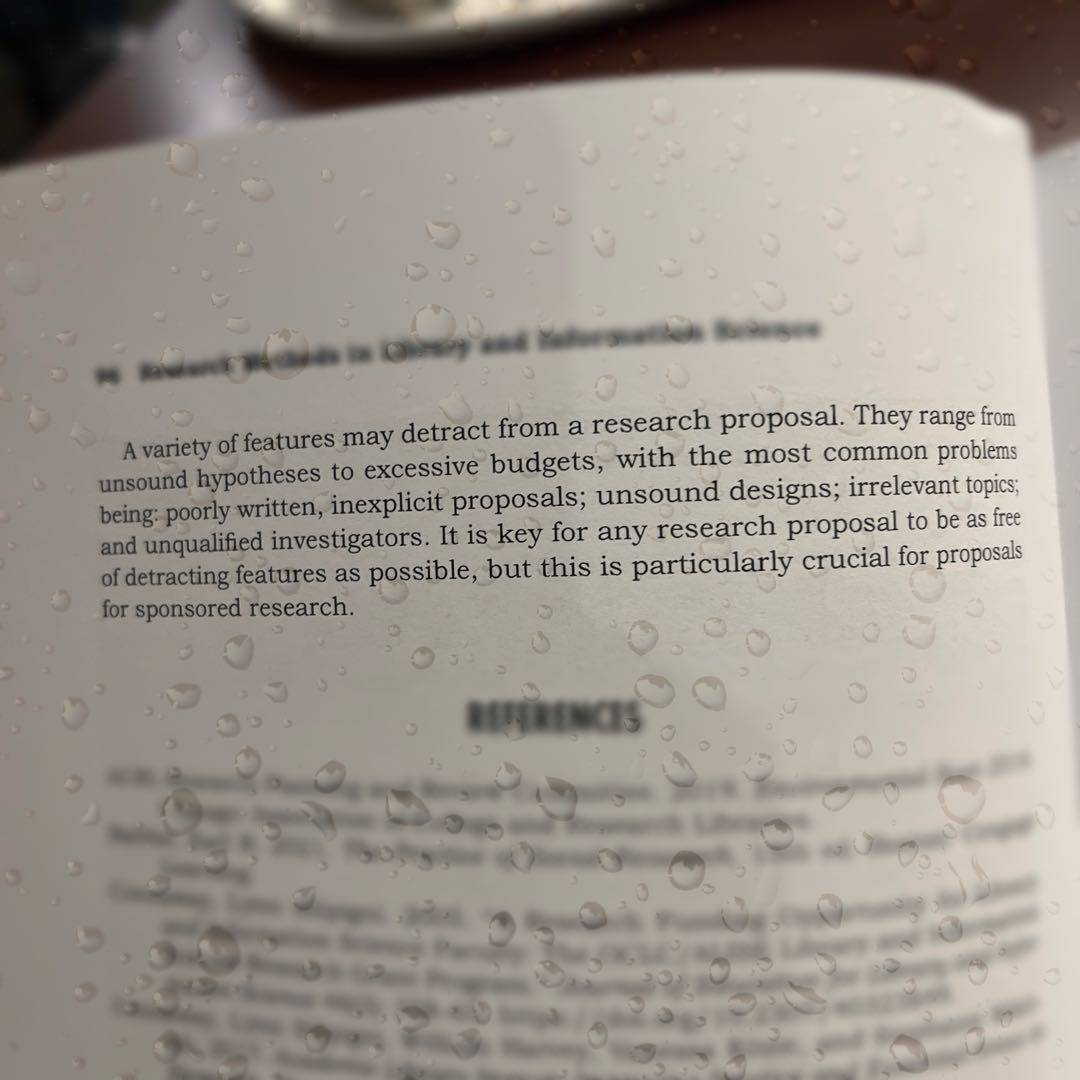
“A variety of features may detract from a research proposal. They range from unsound hypotheses to excessive budgets, with the most common problems being: poorly written, inexplicit proposals; unsound designs; irrelevant topics; and unqualified investigators. It is key for any research proposal to be as free of detracting features as possible, but this is particularly crucial for proposals for sponsored research.”
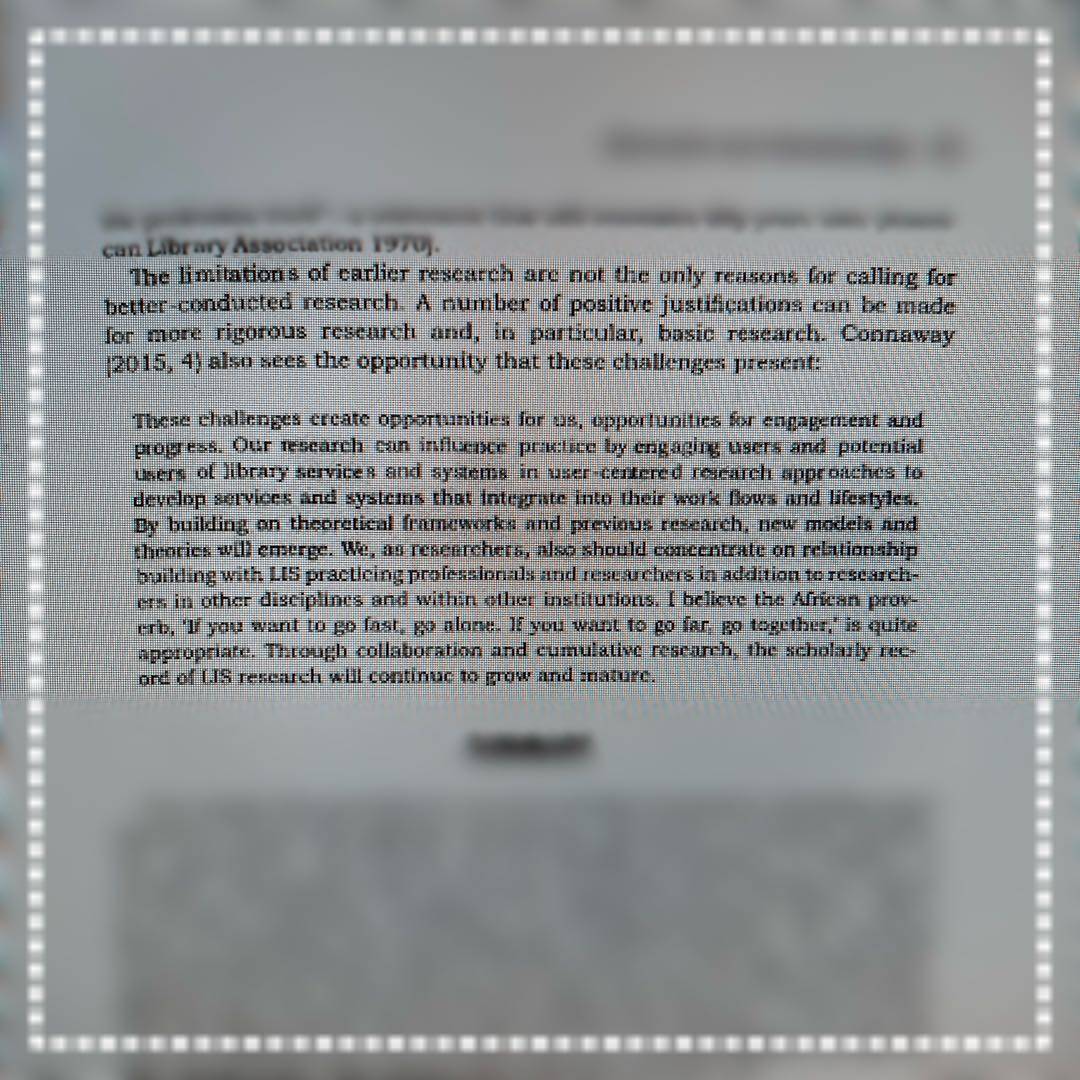
“The limitations of earlier research are not the only reasons for calling for better-conducted research. A number of positive justifications can be made for more rigorous research and, in particular, basic research. Connaway (2015, 4) also sees the opportunity that these challenges present:
‘These challenges create opportunities for us,
opportunities for engagement and progress. . .‘”